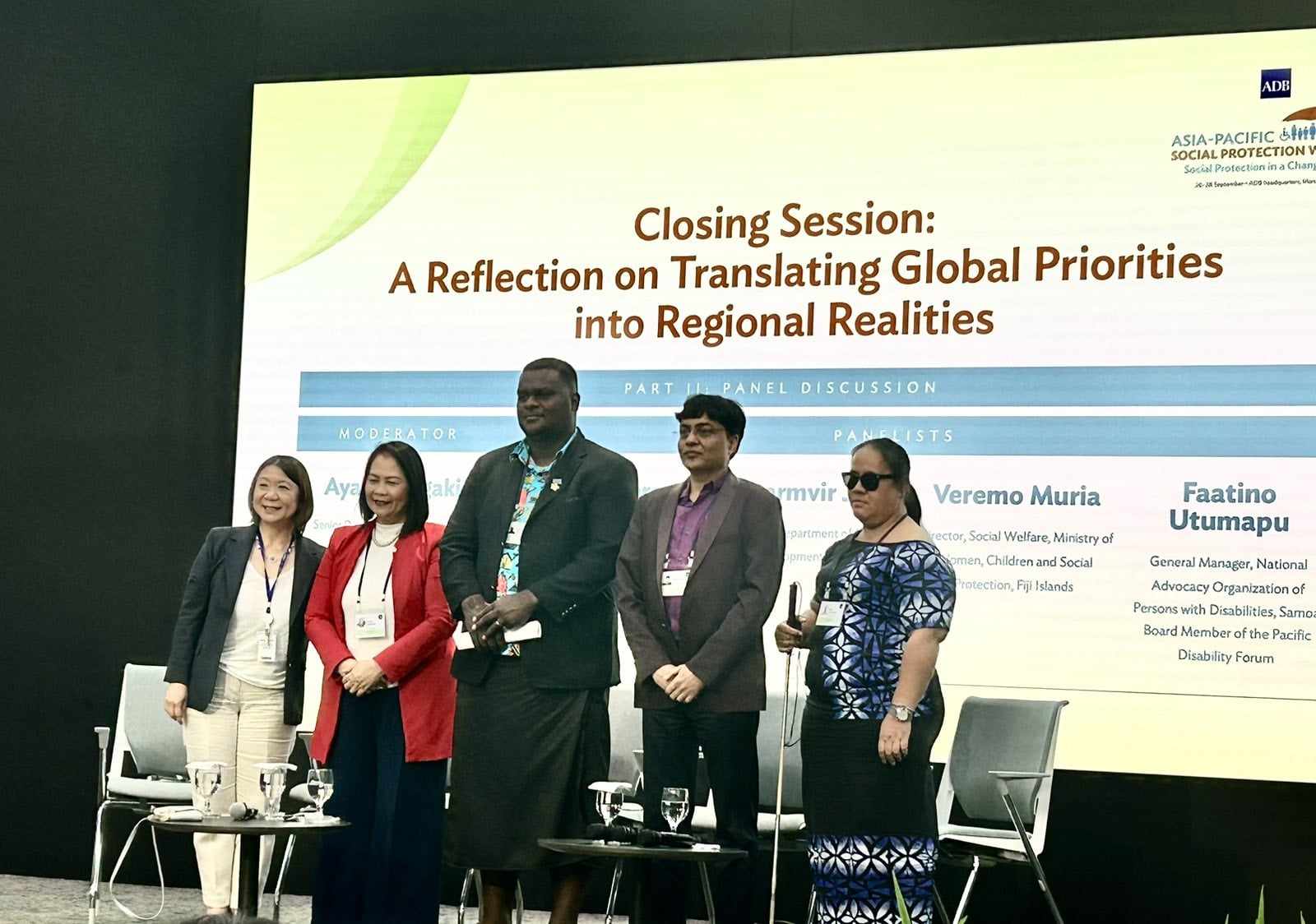Pacific Island countries attending the 2023 Asia Pacific Social Protection conference in Manila this week – used the final day of the meeting to collectively commit to implementing social protection programmes amidst other competing national priorities.
Eight out of the 14 Pacific Developing Members Countries (PDMCs) of the Asian Development Bank (ADB) were represented at the conference – that amongst other things discussed challenges and opportunities related to the role of social protection in post COVID recovery and response to new and emerging crises in the Asia Pacific region. More than 400 delegates from 33 countries in the Asia Pacific region attended the conference that convenes every three years.
In a joint statement at the final plenary Thursday evening, the Pacific nations acknowledged that a lot of work have been carried out in the Pacific to address the social dimension of social protection – but admit there are gaps that need to be addressed.
“We need advocacy when it comes to the social sector budget as various governments need to understand that their allocation clearly indicates their priorities. Again, this will be a challenge for developing countries like us, as we have competing priorities and we are trying to meet our various international commitments, said Veremo Muria, Fiji’s new Director of Social Protection, who spoke on behalf of the Pacific DMC’s.
Muria said all the Pacific countries endorsed the need to build economic inclusion within their social protection systems.
“Domestic and oversea market access and labour market, the lack of independent monitoring and evaluation and expertise in this area continues to be the problem which mostly affects our welfare graduation programme.
“There is a need to think about welfare graduation differently in the Pacific, taking into account the limited domestic industries, responses to the threat of climate change and the role of overseas labour. We invite our partners to engage in this conversation in new and different ways, said Muria.
He said Pacific countries understand the need to provide not only business training opportunities but a wide range of options and pathways like hands on training, educations and upskilling to allow individual to have marketable skills.
“Capacity building, technical expertise, reciprocal learning and investment in this area so that our beneficiaries are not stuck within the poverty trap and the income support trap.
Welfare graduation in the context of social protection – is designed to people attain the confidence and the capacity to independently generate income. It targets individuals living in extreme poverty and provides them with basic resources, financial education, technical training, life skill coaching and social support so that they can ‘graduate’ from social welfare assistance.
“I agree that a lot of conversation have been going on these past three days. The challenge for us as representatives of our governments, is how we filter all these conversations and turn them into commitments for our governments and development partners. The bottom line is we are here to learn and to also show that we exist – and we are very much affected because of our vulnerable position, said Muria on behalf of Pacific countries attending APSP2023 conference.
The Pacific called for more opportunities to present and share their experiences at the next APSP conference in 2026.
Apart from Cook Islands, Samoa and Tonga, no other Pacific countries presented at the main plenary and panel discussions.
The Pacific called for collaboration, sharing of best practices and regular communication amongst ADB member countries.
“Pacific countries believe that nobody gets there unless everybody gets there. This resonates with the saying from our people with disability that ‘nothing about us, without us.’
“As the voice of the Pacific, we acknowledge the support, the technical expertise, the financial assistance provided to the Pacific taking into account our vulnerabilities and the disaster risk that we have. We kindly request that development partners and international organisations start from where we are and not from where you all are – and how we can move forward together – elevating the experience of the Pacific, is important to this, said Muria.
Another area that needs strengthening for Pacific countries is the digitisation of national data and records – reflecting the status of social protection programmes.
“We will get thereby sequencing this right and ensuring our core social protection system are at the centre of disaster and shock responsive approached. We really felt the need and hear the call to ‘go online than fall in line’. May be this will highlight the need to have a Pacific model of social protection – and how culture, as highlighted by Cook Islands, could be a huge part of it.
Also sharing learnings from the conference at the main final plenary was Fa’atino Utumapu representing People With Disabilities (PWDs) from Samoa. Utumapu had one clear message for delegates that social protection must be disability inclusive.
“Nothing about us, without us. Build social protection with us, not for us, said Utumapu, who is also the manager of the Samoan PWD organisation, Nuanua o le Alofa (NOLA).
The next Asia Pacific Social Protection conference will be in 2026.
SOURCE: PACNEWS














